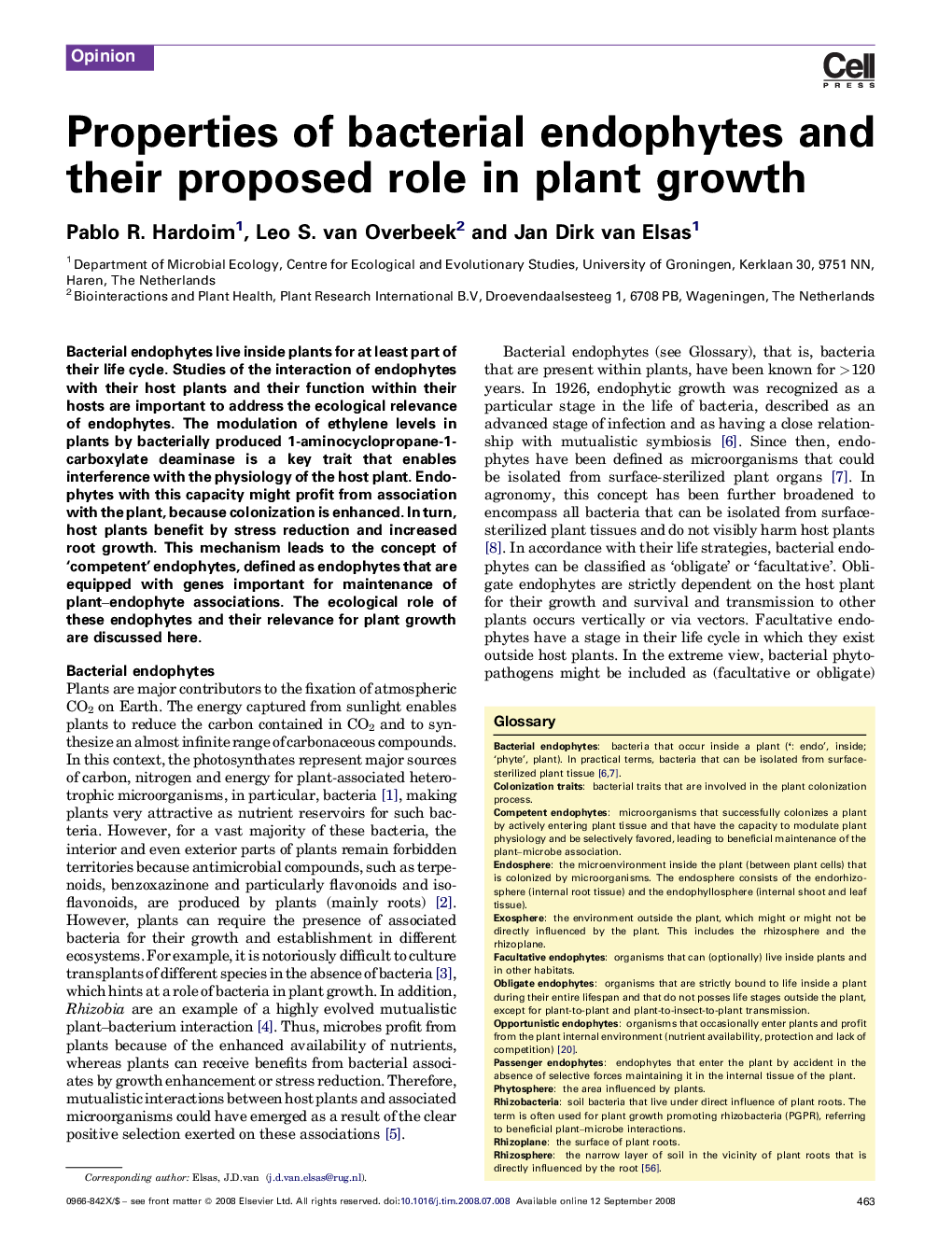| کد مقاله | کد نشریه | سال انتشار | مقاله انگلیسی | نسخه تمام متن |
|---|---|---|---|---|
| 3422558 | 1226773 | 2008 | 9 صفحه PDF | دانلود رایگان |

Bacterial endophytes live inside plants for at least part of their life cycle. Studies of the interaction of endophytes with their host plants and their function within their hosts are important to address the ecological relevance of endophytes. The modulation of ethylene levels in plants by bacterially produced 1-aminocyclopropane-1-carboxylate deaminase is a key trait that enables interference with the physiology of the host plant. Endophytes with this capacity might profit from association with the plant, because colonization is enhanced. In turn, host plants benefit by stress reduction and increased root growth. This mechanism leads to the concept of ‘competent’ endophytes, defined as endophytes that are equipped with genes important for maintenance of plant–endophyte associations. The ecological role of these endophytes and their relevance for plant growth are discussed here.
Journal: - Volume 16, Issue 10, October 2008, Pages 463–471